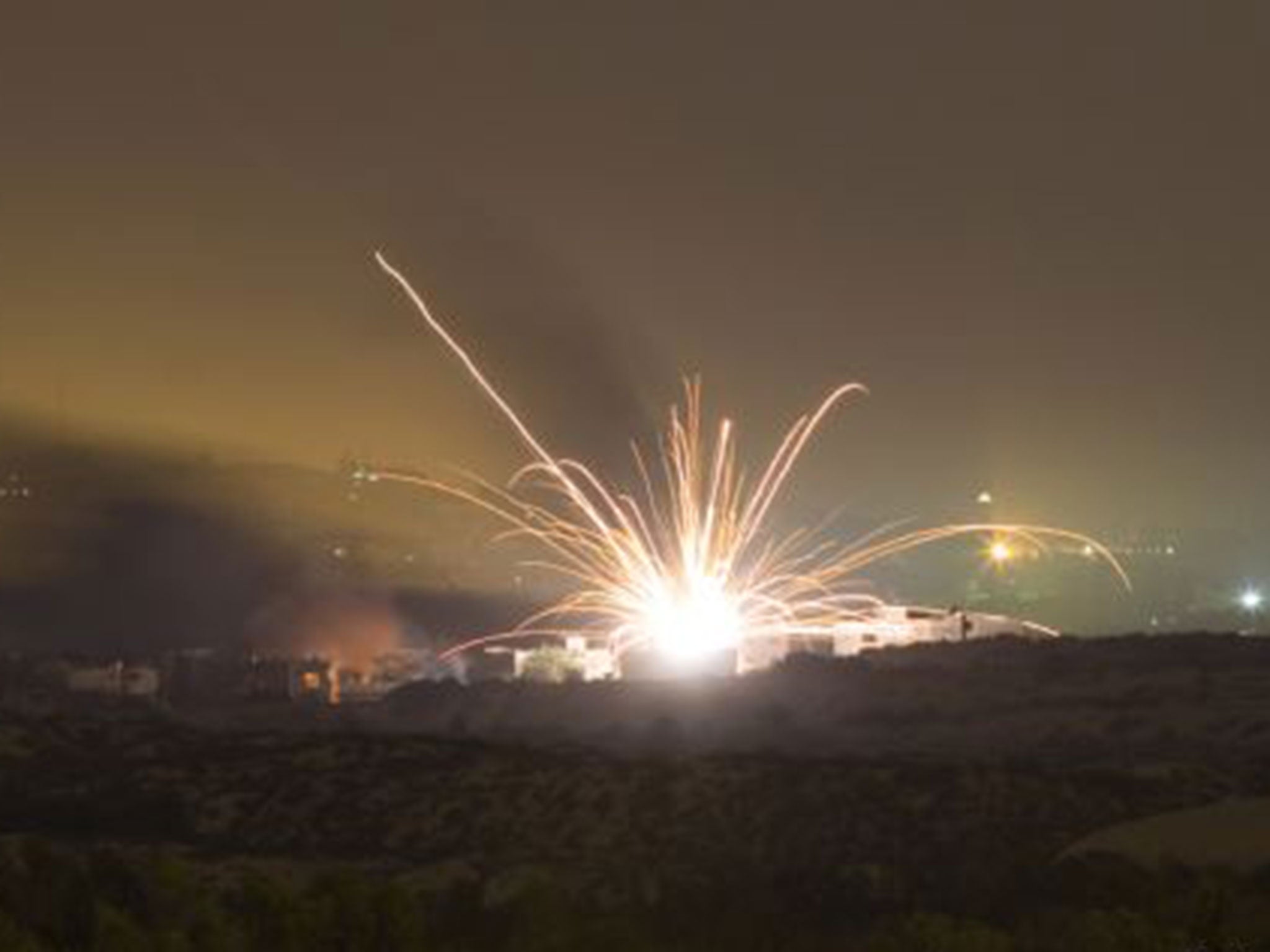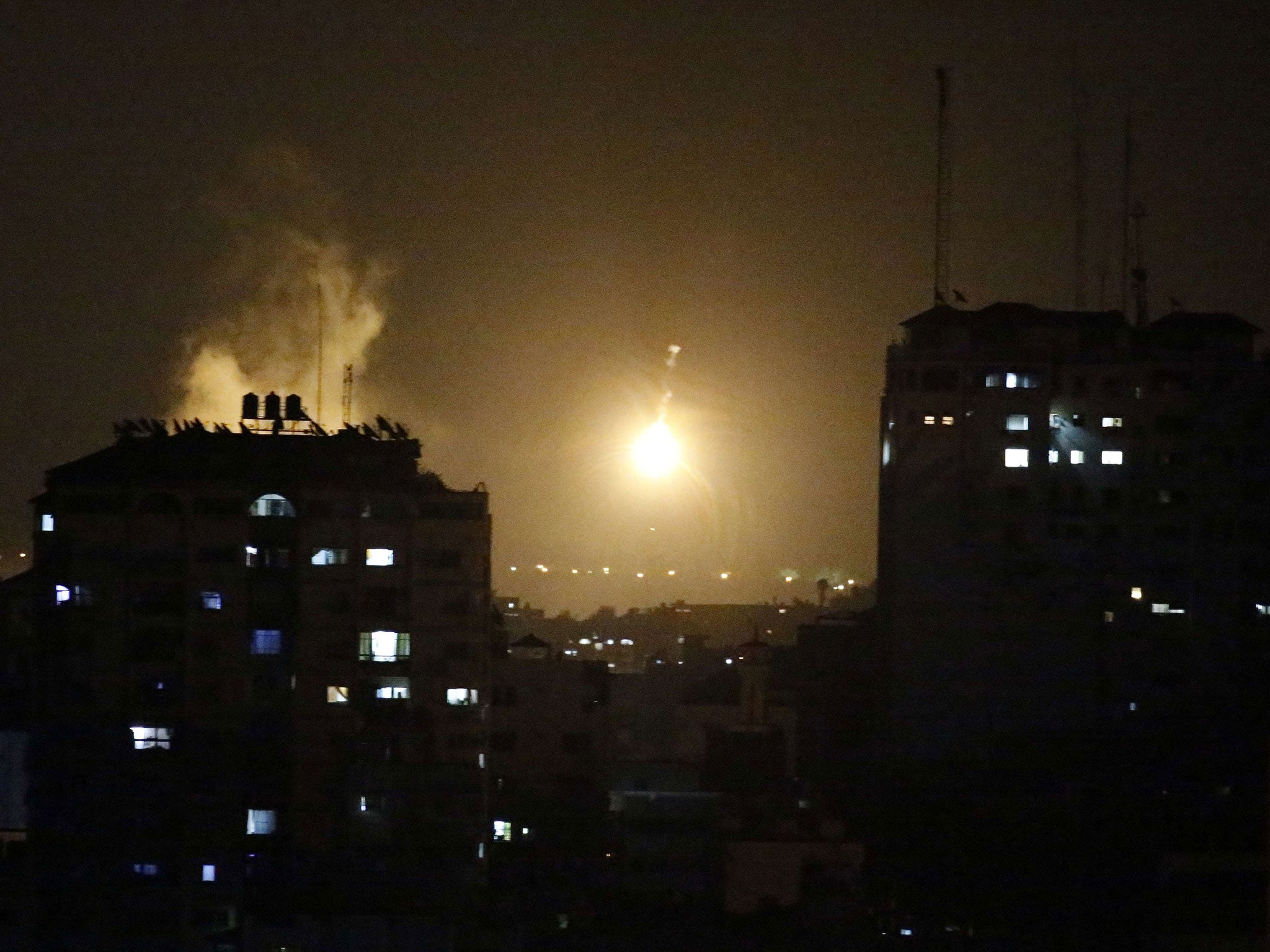Israel-Gaza conflict: Death toll passes 260 as Israel launches first ground offensive
A total of 27 Palestinians were reported to have been killed as Israel Defence Forces lose their first soldier

A total of 27 Palestinians and one Israeli soldier have died after the Israel Defence Forces launched their first ground operation in Gaza on Thursday night.
According to reports from health officials in Gaza, 27 Palestinians were killed as Israeli forces intensified their campaign against Hamas’ leaders, in reaction to a barrage of rockets aimed at Israeli cities.
There were a number of reports of Palestinian civilian fatalities, with four Palestinians from the same family being killed in an attack on the southern Gaza city of Khan Yunis, and five Palestinians, including a five-month-old baby, dying as a result of tank fire in the southern town of Rafah.
The death of the Israeli soldier is the first since Israel’s campaign against Hamas began 11 days ago.
The news of the fatalities from last night’s offensive takes the total number of people to have been killed during the conflict to 269, with a reported 267 Palestinians and two Israelis having died so far.

The Israeli ground operation, which began late on Thursday night, saw the Israel Defence Forces mobilise ground units and tanks in an offensive that aimed to destroy Hamas’ network of tunnels that, Israeli officials claim, were being used to launch attacks on Israeli targetss.
Earlier on Thursday, 13 heavily armed Hamas militants had tried to sneak into Israel through such a tunnel, but were stopped by an air strike after they emerged some 250 metres inside Israel.
Israeli forces entering Gaza
Following the offensive, the Israel Defence Forces' Twitter account announced that they had “neutralized” 14 'terrorists' and destroyed 20 rocket launchers, carried out nine strikes on tunnels & hit a total of 103 terror targets.
Reports since have said that 17 militants were killed in exchanges of fire and 13 more were captured after surrendering.
Brigadier General Moti Almoz said, "there were a number of points of friction through the night" and that 50 rockets had been fired on Israel during the offensive, taking the number of rockets to have hit Israel in the past two weeks up to 1,500.
The Israel Defence Forces also announced their first fatality of the conflict, Sergeant Eitan Barak, 20, yet it is still unclear as to the circumstances behind his death.
Hamas claim that they had killed the soldier after his unit was ambushed in Gaza’s northern town of Beit Lahiya.
However, reports from Israeli media say that the casualty was likely to have been caused by friendly fire between two Israeli units.
Israel’s chief military spokesman Brigadier General Moti Almoz told Army Radio that the death was being investigated.
In the wake of the offensive, the Palestinian Centre for Human Rights released figures that estimated more than 80 per cent of the 260 Palestinian victims to have been killed so far were civilians.
They also reported that a further 1,920 Palestinians had been wounded as a result of the conflict that began on 8 July.
The ground attack is the first to be condoned by the Israeli government, who have previously been reluctant to launch ground attacks on Gaza for fear of casualties to their armed forces.
However, the increase in the number of rockets being launched by Hamas, has seen public opinion move to support further air strikes and a call for an Israeli military presence on the ground in Gaza.
Israel Prime Minister Benjamin Netanyahu announced on Friday morning that the Israeli government were "preparing for the possibility" of "widening their ground operation."
He told reporters before meeting to discuss last night's operation that his military were "preparing accordingly" for similar offensives in the future.
The UN secretary-General Ban Ki-Moon voiced his regret that Israel had carried out the offensive.
Speaking to press at the United Nations Headquarters on Thursday, he said: "I regret that despite my urgings, and of many regional and world leaders together, an already dangerous conflict has now escalated even further.
"I urge Israel to do far more to stop civilian casualties. There can be no military solution to this conflict."
Join our commenting forum
Join thought-provoking conversations, follow other Independent readers and see their replies
Comments
Bookmark popover
Removed from bookmarks